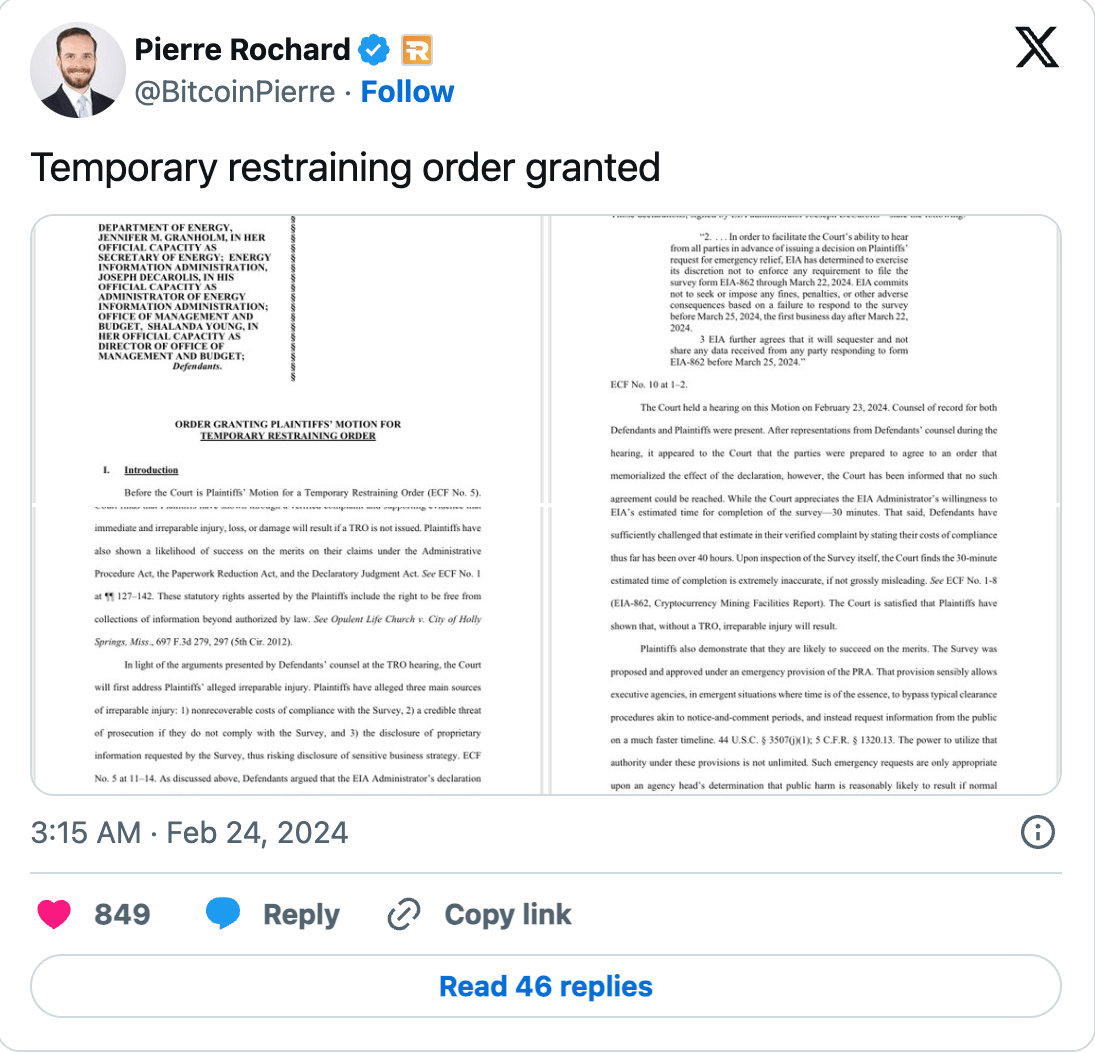The Texas Blockchain Council (TBC) and Bitcoin mining company Riot Platforms received a favorable ruling from a United States District Judge in their lawsuit against US energy authorities. On February 22, it had come to light that TBC and Riot were challenging the US Department of Energy, the Energy Information Administration (EIA), the Office of Management and Budget (OMB), and their leadership’s efforts to collect data from cryptocurrency miners.
Mining Company Takes Significant Step
According to a filing on February 23 in the Western District of Texas US District Court, TBC and Riot convinced the judge overseeing the case that irreversible harm would occur without a temporary restraining order to halt further data collection. Consequently, the court initiated a process that prohibits the EIA from demanding crypto miners to respond to the survey and from sharing any data obtained from the survey:
“The Court finds that the plaintiffs have demonstrated through a verified complaint and supporting evidence that without a decision, imminent and irreparable injury, loss, or damage will result.”

TBC and Riot argued that potential damages included the irrecoverable costs of compliance with the survey, the credible threat of prosecution for non-compliance, and the disclosure of requested confidential information. There was also a dispute over the time frame miners were given to complete the survey without compensation.
Despite the EIA estimating the survey’s completion time to be about 30 minutes, the court deemed this estimate to be extremely inaccurate. Meanwhile, TBC and Riot have contended that the compliance cost has exceeded 40 hours to date, challenging the estimate.
Noteworthy Details from the Court
The court, based on the evidence presented, decided that TBC and Riot have a high likelihood of winning the case. It also accused the EIA of abusing its authority to approve emergency investigations, but the court found such actions far from justified:
“The plaintiffs also show that they are likely to succeed on the merits of the case. The survey has been proposed and approved under an emergency provision of the PRA.”
Furthermore, it was clarified that the Temporary Restraining Order (TRO) would expire before March 25 and that its purpose for the four-week duration was to maintain stability.

 Türkçe
Türkçe Español
Español









